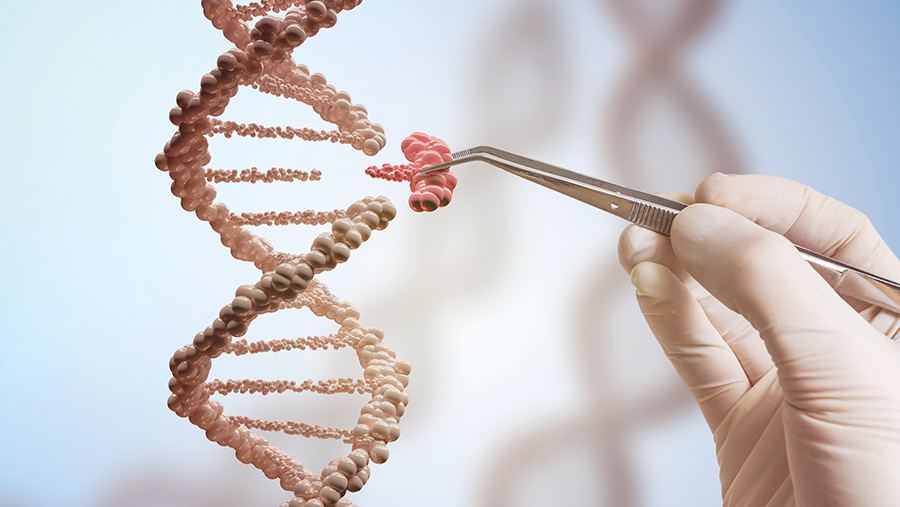FW Opinion: Public consent key before we gene-edit livestock
 © V-Chalup/Adobe Stock
© V-Chalup/Adobe Stock Gene editing. Sounds like a country singer, but it isn’t.
It is a scientific method of adapting an organism’s DNA that has huge implications for many branches of science, including agriculture.
There are strong expectations that it could allow beneficial traits to be introduced into plants and animals, such as disease resistance.
Gene editing differs from genetic modification as material from other species is not introduced into the subject.
See also: FW Opinion: Empathy between town and country works both ways
One of its main benefits is that it can accelerate the pace of what can already be achieved through more traditional breeding techniques. But just because we can do it, should we?
There are some uses for it that are beyond reproach. It’s the technique that has helped scientists speed up the development of several of the world’s Covid-19 vaccines.
Even now, people in white coats are working diligently to see how these could be updated to fight the latest Omicron variant.
And farming leaders are saying in private that the success of gene editing in vaccines could be the key that unlocks permission with the public to use the technique for their food, too.
If they’ve had a genetically edited vaccine in their arm, why not also steak from, say, a breed of cow genetically edited to be resistant to bovine viral diarrhoea, and chips from a drought-tolerant variety of potato in their stomachs?
Much has already been said in the debate on gene editing in crops, and the first trial wheat bred in this way should by now be in the ground at Rothamsted to investigate if a variety can be grown without a potential cancer-causing compound.
If retailers get spooked and decide not to support it, then whatever gene editing’s benefits, it could be a dangerous path to tread
So, while you won’t find any gene-edited varieties in this week’s AHDB Recommended List, there is a good chance you could within the next decade.
Within this sort of timeframe we could see breeding programmes launched to create disease-resistant farm animals, such as sows that have resistance to porcine reproductive and respiratory syndrome.
But this will only happen if the government chooses to relax the regulatory barriers currently standing in the way, and it needs to think very carefully before doing that.
That was the message this week from the Nuffield Council on Bioethics, which has conducted an in-depth investigation into what gene editing could mean for farmers and consumers.
There are significant potential upsides: happier and healthier animals, reduced reliance on antibiotics and the environmental benefits of higher productivity.
But there are also downsides, chief among them whether we can get the consent of the public.
Farmers of a certain vintage will still remember the GM debate of the late 1990s and early 2000s, which saw rampant public opposition to crops bred in this way.
Two decades may have elapsed since then, but it is fair to say that the public’s suspicion over the quality of American food compared with our own has not abated since it got wrapped up in the debate about post-Brexit trade deals.
British farmers have not been shy about highlighting the stricter standards of food production here compared with those in many other parts of the world.
If retailers get spooked and decide not to support it, then whatever gene editing’s benefits, it could be a dangerous path to tread.
We can’t afford to not use a tool that will drive down disease and promote better animal welfare.
But reliance on this rock-solid defence means there should be extremely stringent regulation that prohibits all uses of gene editing that don’t benefit livestock, farmers, consumers and the environment.

